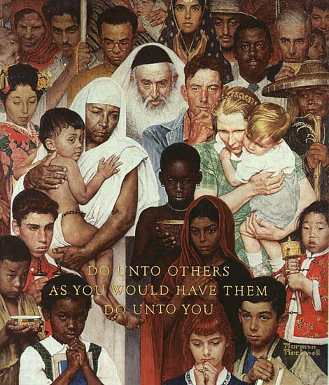GOLDEN RULE

The principle known as the Golden Rule: `Do unto others what you would have them do unto you' (Matthew 7, 12), is often thought of as the apex of Jesus' moral teachings and of being unique to Christianity. However, the Buddha made this same principle one of the cornerstones of his ethics too. It occurs in many places and in many forms throughout the Tipiñaka.
For example, the Buddha said: `All tremble at punishment. Life is dear to all. Put yourself in the place of others and harm none nor have them harmed'(Dhp.130). `You should make this inference, ßA person who is angry and who speaks angrily is unpleasant and disagreeable to me, so if I were angry and spoke angrily I would be unpleasant and disagreeable to others.û Understanding this, one should then think, ßI shall neither be angry nor speak angrilyû.' (M.I,99). `Thinking ßAs am I so are others, as are others so am Iû harm none nor have them harmed' (Sn.705).
To make the so-called Golden Rule central to one's thought and behaviour, several prerequisites are necessary. One must be clear about one's own true welfare, one must be aware of the reactions of others, and one must be detached enough to get out of one's own feelings and enter into the feelings of others. So interestingly, true empathy and compassion are preceded by a degree of mindfulness and detachment. See Altruism and Buddha and Jesus.